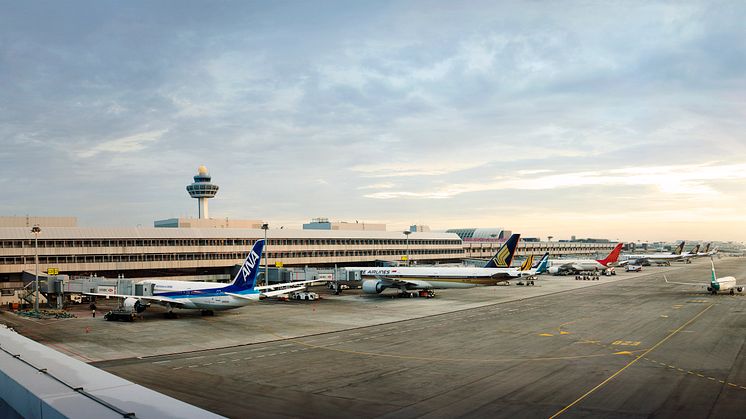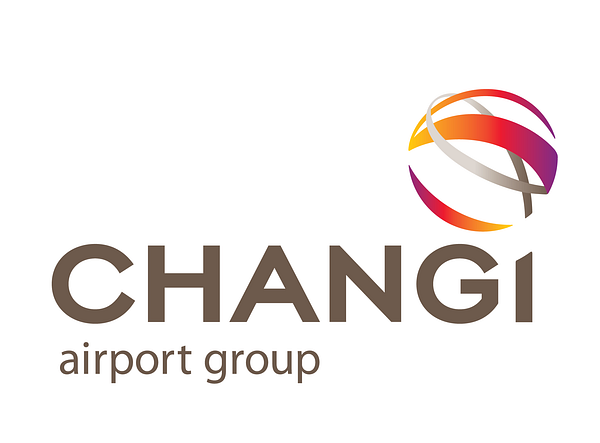
Press release -
Changi Airport registers a record 58.7 million passengers in 2016
SINGAPORE, 30 January 2017 – Singapore Changi Airport recorded a strong performance in 2016, reaching all-time highs of 58.7 million passenger movements (+5.9%) and 360,490 aircraft movements (+4.1%) for the year. Airfreight throughput increased by 6.3% to also reach a new high of 1.97 million tonnes.
For the month of December, Changi Airport registered 5.68 million passenger movements (+7.2%), 31,970 aircraft movements (+4.4%) and 177,360 airfreight movements (+8.4%). The airport saw its busiest day in its history on 23 December 2016, with 202,359 passengers passing through its gates. The monthly breakdown for passenger, airfreight and aircraft movements for 2016 can be found in Annex A.
In 2016, routes to South East Asia, North East Asia and Oceania contributed 90% of the growth in passenger traffic. China moved from fifth to become Changi Airport’s third largest country market for the year[1], with robust traffic growth of 15%. This was on the back of very strong visitor arrivals to Singapore. A healthy increase in visitor numbers also contributed to passenger traffic growth for Thailand (+6%) and Vietnam (+8%).
There was little change in the top 10 list of Changi Airport’s busiest routes for the year, with Jakarta remaining at the top. Kuala Lumpur moved up one notch, swapping places with Bangkok. See Annex B for the full list. Among Changi Airport’s top 20 city links, Guangzhou was the fastest growing (+ 21%), with Melbourne, Penang and Seoul also achieving double-digit growth.
New airlines and destinations
Changi Airport welcomed two passenger airlines (West Air and Fiji Airways), and two freighter carriers (Neptune Air and Silkway West Airlines) to its family of over 100 airlines. United Airlines and Singapore Airlines commenced non-stop flights to San Francisco, while freighter airline K-Mile Air resumed operations to Changi Airport.
Eight new city links were established during the year – to India (Amritsar and Jaipur), China (Urumqi), Australia (Canberra), New Zealand (Wellington), Fiji (Nadi), Japan (Sapporo) and Germany (Dusseldorf).
Strengthening Changi’s cargo capabilities
In terms of airfreight throughput, growth was recorded across imports, exports and transshipments. Perishables and pharmaceuticals were segments that performed well, contributing a significant portion of Changi’s total cargo throughput. The top five country markets for airfreight were China, Australia, Hong Kong, the United States and India.
To strengthen its pharmaceutical cargo handling capabilities, Changi Airport formed a community of cargo partners to undergo the attainment of International Air Transport Association’s (IATA) Center of Excellence for Independent Validators on Pharmaceutical Handling (CEIV Pharma) certification. Under a community approach, at least one company from each of the supply chain nodes (airlines, ground handlers, freight forwarders) will undergo the CEIV Pharma certification. The pioneer group of companies consists of Singapore Airlines Cargo, dnata Singapore, Global Airfreight International, Expeditors Singapore, CEVA Logistics Singapore, and Schenker Singapore. SATS Coolport was the first facility in the world to be certified in 2014. Beyond the establishment of a CEIV Phama certified community, Changi Airport Group also joined Pharma.Aero, an organisation focused on achieving reliable end-to-end air transportation for pharmaceutical cargo.
In October 2016, the DHL Express South Asia Hub, a 24-hour express hub facility located within Changi Airfreight Centre, was officially opened. This has tripled DHL Express’ cargo handling facility in Singapore and allows shipments to be processed six times faster. Together with SATS’ upcoming eCommerce AirHub, expected to open later this year, these developments will boost Changi’s position as a leading air cargo hub in Asia.
Gearing up for future growth
Changi Airport was awarded 26 Best Airport awards in 2016, bringing the total to 533 to date. Accolades included Skytrax’s World’s Best Airport Award 2016, for the fourth time in a row, and Business Traveller’s ‘Best Airport in the World’ award for the 29th consecutive year.
Changi Airport Group CEO Mr Lee Seow Hiang, said, “2016 was a record-breaking year for Changi Airport, with passenger traffic and cargo throughput both registering new peaks. We are also pleased with the introduction of many new city links, including to Europe and Oceania, as well as the launch of non-stop services to the United States.
“Despite a backdrop of economic and socio-political uncertainties, we maintain a positive outlook for the year ahead. We see opportunities in emerging markets within Africa and Eastern Europe. At the same time, we will continue to grow our long haul routes to Western Europe, and strengthen our connectivity within the region to secondary cities in South East Asia, China and India.
“We have observed emerging trends such as growth in the self-transfer and fly-cruise segments, and will continue to work with our partners to develop innovative solutions to better serve passengers. Similarly, manageable fuel costs and improvement in aircraft technology bode well for Changi Airport’s drive to work with airlines to expand our network of city links.
“We thank the airport community and our many partners who helped to maintain high service standards at Changi Airport even as traffic continued to grow. We look forward to their continued support in 2017 as we prepare for the opening of Terminal 4 later this year.”
[1] Changi Airport’s top 5 country markets are Indonesia, Malaysia, China, Thailand and Australia.
Topics
Categories
About Changi Airport Group
Changi Airport Group (Singapore) Pte Ltd (CAG) (www.changiairportgroup.com) was formed on 16 June 2009 and the corporatisation of Singapore Changi Airport (IATA: SIN, ICAO: WSSS) followed on 1 July 2009. As the company managing Changi Airport, CAG undertakes key functions focusing on airport operations and management, air hub development, commercial activities and airport emergency services. CAG also manages Seletar Airport (IATA: XSP, ICAO: WSSL) and through its subsidiary Changi Airports International, invests in and manages foreign airports.
Changi Airport is the world's sixth busiest airport[2] for international traffic. It served a record 58.7 million passengers from around the globe in 2016. More than 360 retail stores and 140 F&B outlets are situated across three terminals to cater to passengers and visitors. With over 100 airlines providing connectivity to 380 cities worldwide, Changi Airport handles more than 7,000 flights every week, or about one every 90 seconds.
[2] Based on 2015 figures
